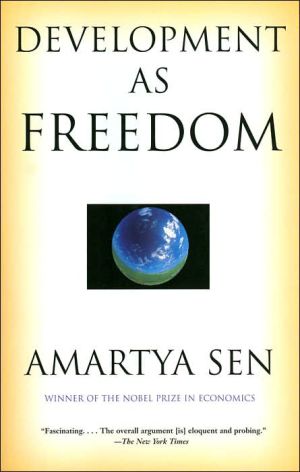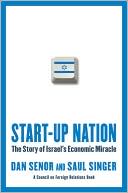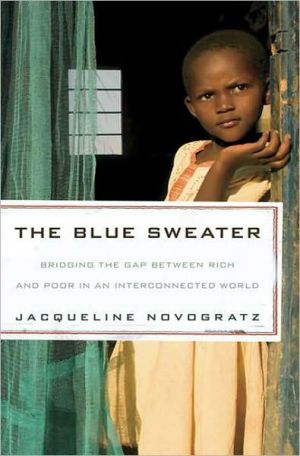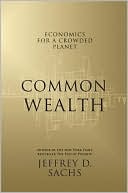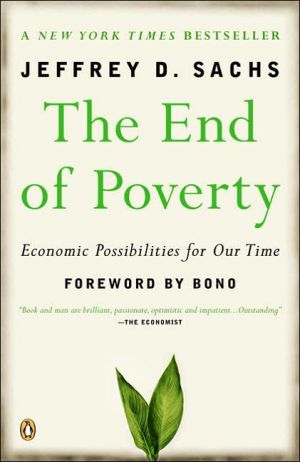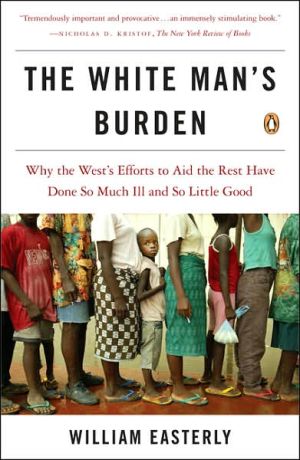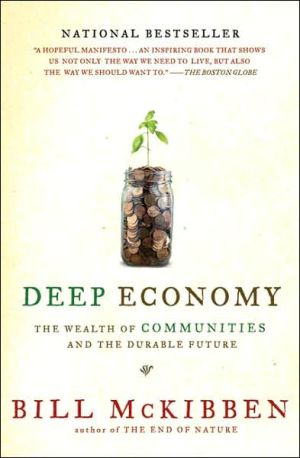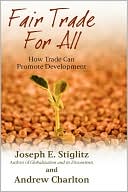Development as Freedom
By the winner of the 1988 Nobel Prize in Economics, an essential and paradigm-altering framework for understanding economic development--for both rich and poor--in the twenty-first century. \ Freedom, Sen argues, is both the end and most efficient means of sustaining economic life and the key to securing the general welfare of the world's entire population. Releasing the idea of individual freedom from association with any particular historical, intellectual, political,...
Search in google:
By the winner of the 1988 Nobel Prize in Economics, an essential and paradigm-altering framework for understanding economic development—for both rich and poor—in the twenty-first century. Freedom, Sen argues, is both the end and most efficient means of sustaining economic life and the key to securing the general welfare of the world's entire population. Releasing the idea of individual freedom from association with any particular historical, intellectual, political, or religious tradition, Sen clearly demonstrates its current applicability and possibilities. In the new global economy, where, despite unprecedented increases in overall opulence, the contemporary world denies elementary freedoms to vast numbers—perhaps even the majority of people—he concludes, it is still possible to practically and optimistically restain a sense of social accountability. Development as Freedom is essential reading. Publishers Weekly When Sen, an Indian-born Cambridge economist, won the 1998 Nobel Prize for Economic Science, he was praised by the Nobel Committee for bringing an "ethical dimension" to a field recently dominated by technical specialists. Sen here argues that open dialogue, civil freedoms and political liberties are prerequisites for sustainable development. He tests his theory with examples ranging from the former Soviet bloc to Africa, but he puts special emphasis on China and India. How does one explain the recent gulf in economic progress between authoritarian yet fast-growing China and democratic, economically laggard India? For Sen, the answer is clear: India, with its massive neglect of public education, basic health care and literacy, was poorly prepared for a widely shared economic expansion; China, on the other hand, having made substantial advances in those areas, was able to capitalize on its market reforms. Yet Sen demolishes the notion that a specific set of "Asian values" exists that might provide a justification for authoritarian regimes. He observes that China's coercive system has contributed to massive famine and that Beijing's compulsory birth control policy--only one child per family--has led to fatal neglect of female children. Though not always easy reading for the layperson, Sen's book is an admirable and persuasive effort to define development not in terms of GDP but in terms of "the real freedoms that people enjoy." (Sept.) Copyright 1999 Cahners Business Information.
We live in a world of unprecedented opulence of a kind that would have been hard even to imagine a century or two ago. There have also been remarkable changes beyond the economic sphere. The twentieth century has established democratic and participatory governance as the preeminent model of political organization. Concepts of human rights and political liberty are now very much a part of the prevailing rhetoric. People live much longer, on an average, than ever before. Also, the different regions of the globe are now more closely linked than they have ever been. This is so not only in the fields of trade, commerce and communication, but also in terms of interactive ideas and ideals.\ And yet we also live in a world with remarkable deprivation, destitution and oppression. There are many new problems as well as old ones, including persistence of poverty and unfulfilled elementary needs, occurrence of famines and widespread hunger, violation of elementary political freedoms as well as of basic liberties, extensive neglect of the interests and agency of women and worsening threats to our environment and to the sustainability of our economic and social lives. Many of these deprivations can be observed, in one form or another, in rich countries as well as poor ones.\ Overcoming these problems is a central part of the exercise of development. We have to recognize, it is argued here, the role of freedoms of different kinds in countering these afflictions. Indeed, individual agency is, ultimately, central to addressing these deprivations. On the other hand, the freedom of agency that we have individually is inescapably qualified and constrained by the social, political and economic opportunities that are available to us. There is a deep complementarity between individual agency and social arrangements. It is important to give simultaneous recognition to the centrality of individual freedom and to the force of social influences on the extent and reach of individual freedom. To counter the problems that we face, we have to see individual freedom as a social commitment. This is the basic approach that this work tries to explore and examine.\ Expansion of freedom is viewed, in this approach, both as the primary end and as the principal means of development. Development consists of the removal of various types of unfreedoms that leave people with little choice and little opportunity of exercising their reasoned agency. The removal of substantial unfreedoms, it is argued here, is constitutive of development. However, for a fuller understanding of the connection between development and freedom we have to go beyond that basic recognition (crucial as it is). The intrinsic importance of human freedom, in general, as the preeminent objective of development has to be distinguished from the instrumental effectiveness of freedoms of particular kinds to promote freedoms of other kinds.\ The linkages between different types of freedoms are empirical and causal, rather than constitutive and compositional. For example, there is strong evidence that economic and political freedoms help to reinforce one another, rather than being hostile to one another (as they are sometimes taken to be). Similarly, social opportunities of education and health care, which may require public action, complement individual opportunities of economic and political participation and also help to foster our own initiatives in overcoming our respective deprivations. If the point of departure of the approach lies in the identification of freedom as the main object of development, the reach of the policy analysis lies in establishing the empirical linkages that make the viewpoint of freedom coherent and cogent as the guiding perspective of the process of development.\ This work outlines the need for an integrated analysis of economic, social and political activities, involving a variety of institutions and many interactive agencies. It concentrates particularly on the roles and interconnections between certain crucial instrumental freedoms, including economic opportunities, political freedoms, social facilities, transparency guarantees, and protective security. Societal arrangements, involving many institutions (the state, the market, the legal system, political parties, the media, public interest groups and public discussion forums, among others) are investigated in terms of their contribution to enhancing and guaranteeing the substantive freedoms of individuals, seen as active agents of change, rather than as passive recipients of dispensed benefits.\ The book is based on five lectures I gave as a Presidential Fellow at the World Bank during the fall of 1996. There was also one follow-up lecture in November 1997 dealing with the overall approach and its implications. I appreciated the opportunity and the challenge involved in this task, and I was particularly happy that this happened at the invitation of President James Wolfensohn, whose vision, skill and humanity I much admire. I was privileged to work closely with him earlier as a Trustee of the Institute for Advanced Study at Princeton, and more recently, I have also watched with great interest the constructive impact of Wolfensohn's leadership on the Bank.\ The World Bank has not invariably been my favorite organization. The power to do good goes almost always with the possibility to do the opposite, and as a professional economist, I have had occasions in the past to wonder whether the Bank could not have done very much better. These reservations and criticisms are in print, so I need not make a "confession" of harboring skeptical thoughts. All this made it particularly welcome to have the opportunity to present at the Bank my own views on development and on the making of public policy.\ This book, however, is not intended primarily for people working at or for the Bank, or other international organizations. Nor is it just for policy makers and planners of national governments.\ Rather, it is a general work on development and the practical reasons underlying it, aimed particularly at public discussion. I have rearranged the six lectures into twelve chapters, both for clarity and to make the written version more accessible to nonspecialist readers. Indeed, I have tried to make the discussion as nontechnical as possible, and have referred to the more formal literature--for those inclined in that direction--only in endnotes. I have also commented on recent economic experiences that occurred after my lectures were given (in 1996), such as the Asian economic crisis (which confirmed some of the worst fears I had expressed in those lectures).\ In line with the importance I attach to the role of public discussion as a vehicle of social change and economic progress (as the text will make clear), this work is presented mainly for open deliberation and critical scrutiny. I have, throughout my life, avoided giving advice to the "authorities." Indeed, I have never counseled any government, preferring to place my suggestions and critiques--for what they are worth--in the public domain. Since I have been fortunate in living in three democracies with largely unimpeded media (India, Britain, and the United States), I have not had reason to complain about any lack of opportunity of public presentation. If my presentation here arouses any interest, and leads to more public discussion of these vital issues, I would have reason to feel well rewarded.
List of IllustrationsPrefaceAcknowledgmentsIntroduction: Development as Freedom31The Perspective of Freedom132The Ends and the Means of Development353Freedom and the Foundations of Justice544Poverty as Capability Deprivation875Markets, State and Social Opportunity1116The Importance of Democracy1467Famines and Other Crises1608Women's Agency and Social Change1899Population, Food and Freedom20410Culture and Human Rights22711Social Choice and Individual Behavior24912Individual Freedom as a Social Commitment282Notes299Index by Name353Index by Subject361
\ From Barnes & NobleCalled "the conscience keeper" of world economics by one Indian newspaper, Dr. Amartya Sen won the 1998 Noble Prize in Economic Science with this humane & decisive work. The premise of the volume is deceptively simply: The relationship of economic wealth and the ability to live as one likes seems to be obvious; but the real world issues that it raises in economic development and public policy are daunting and complicated. Securing individual freedom at the center of his analysis of the global economy, Dr. Sen avoids the facile solutions of isms. His optimistic, yet tough-minded message has made this book one of the most influential in the past decade among academics and opinion makers.\ \ \ \ \ Publishers Weekly - Publisher's Weekly\ When Sen, an Indian-born Cambridge economist, won the 1998 Nobel Prize for Economic Science, he was praised by the Nobel Committee for bringing an "ethical dimension" to a field recently dominated by technical specialists. Sen here argues that open dialogue, civil freedoms and political liberties are prerequisites for sustainable development. He tests his theory with examples ranging from the former Soviet bloc to Africa, but he puts special emphasis on China and India. How does one explain the recent gulf in economic progress between authoritarian yet fast-growing China and democratic, economically laggard India? For Sen, the answer is clear: India, with its massive neglect of public education, basic health care and literacy, was poorly prepared for a widely shared economic expansion; China, on the other hand, having made substantial advances in those areas, was able to capitalize on its market reforms. Yet Sen demolishes the notion that a specific set of "Asian values" exists that might provide a justification for authoritarian regimes. He observes that China's coercive system has contributed to massive famine and that Beijing's compulsory birth control policy--only one child per family--has led to fatal neglect of female children. Though not always easy reading for the layperson, Sen's book is an admirable and persuasive effort to define development not in terms of GDP but in terms of "the real freedoms that people enjoy." (Sept.) Copyright 1999 Cahners Business Information.\ \ \ BooknewsExpanding upon the ideas which led to the 1998 Nobel Prize in economics, Sen (Cambridge) analyzes the nature of modern economic development to diminish the "capability deprivation" of poverty from the perspective of human freedom as the ultimate goal of, and most efficient means of optimizing, economic life. Annotation c. Book News, Inc., Portland, OR (booknews.com)\ \ \ \ \ James NorthSen's work is indispensableto understanding how to confront the number-one problem in the world today: glaring, and increasing, global inequality. Development as Freedom is Sen's first extended effort to reach a general audience...one of the most important thinkers of our time. \ — Nation\ \ \ \ \ Avishai MargalitAmartya Sen has written a noble book on freedom—real freedom, and it's relation to economic development. Sen does much to rehabilitate the idea of real freedom from its debased history. \ —New Republic\ \ \ \ \ The IndependentThis is economics that should be read: not merely for the elegance of its arguments or the wisdom of its judgements, but for the deep and burnished humanity that animates it.\ \ \ \ \ Kirkus ReviewsEconomics meets philosophy in this wide-ranging manifesto that identifies freedom as the agent of universal development as well as its goal.\ \
